How 7 Top Investment Pros Are Investing in 2017
Scan the investment landscape and you may not see much fertile ground.

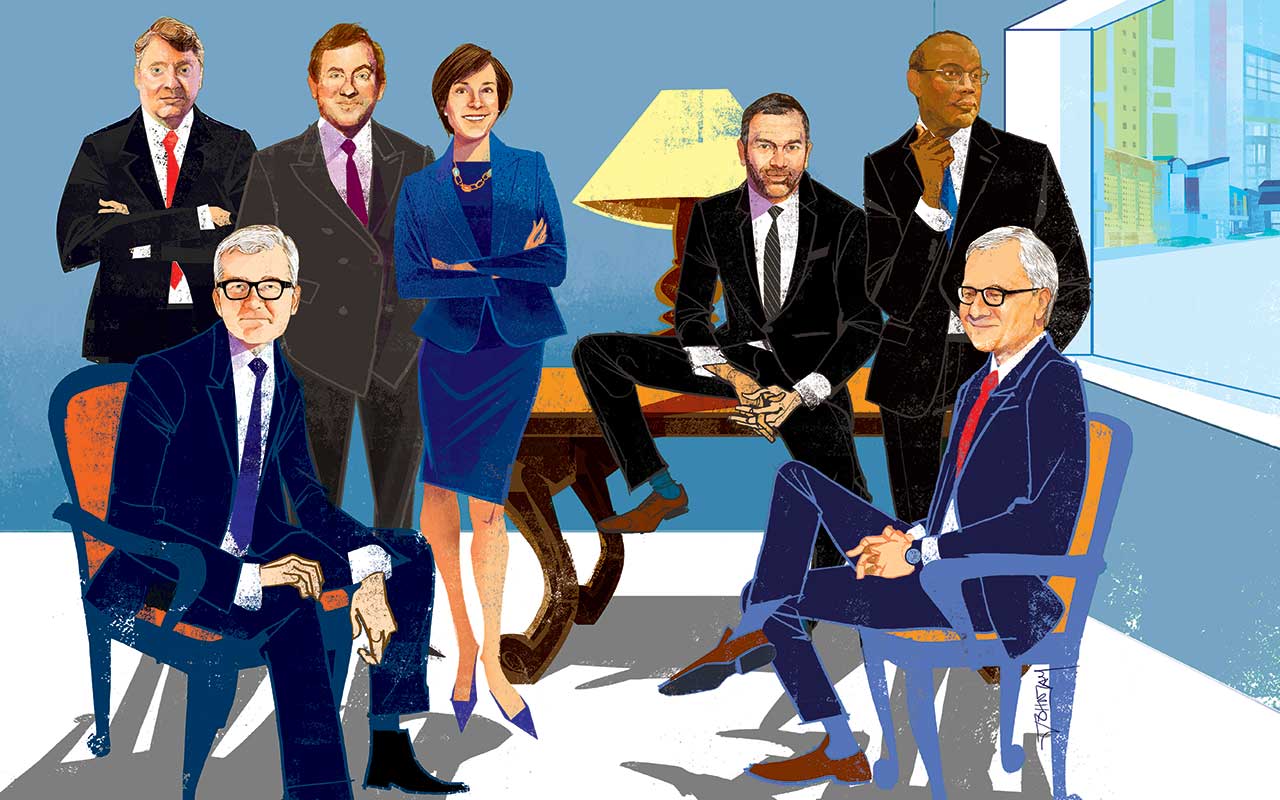
Profit and prosper with the best of Kiplinger's advice on investing, taxes, retirement, personal finance and much more. Delivered daily. Enter your email in the box and click Sign Me Up.
You are now subscribed
Your newsletter sign-up was successful
Want to add more newsletters?

Delivered daily
Kiplinger Today
Profit and prosper with the best of Kiplinger's advice on investing, taxes, retirement, personal finance and much more delivered daily. Smart money moves start here.

Sent five days a week
Kiplinger A Step Ahead
Get practical help to make better financial decisions in your everyday life, from spending to savings on top deals.

Delivered daily
Kiplinger Closing Bell
Get today's biggest financial and investing headlines delivered to your inbox every day the U.S. stock market is open.

Sent twice a week
Kiplinger Adviser Intel
Financial pros across the country share best practices and fresh tactics to preserve and grow your wealth.

Delivered weekly
Kiplinger Tax Tips
Trim your federal and state tax bills with practical tax-planning and tax-cutting strategies.

Sent twice a week
Kiplinger Retirement Tips
Your twice-a-week guide to planning and enjoying a financially secure and richly rewarding retirement

Sent bimonthly.
Kiplinger Adviser Angle
Insights for advisers, wealth managers and other financial professionals.

Sent twice a week
Kiplinger Investing Weekly
Your twice-a-week roundup of promising stocks, funds, companies and industries you should consider, ones you should avoid, and why.

Sent weekly for six weeks
Kiplinger Invest for Retirement
Your step-by-step six-part series on how to invest for retirement, from devising a successful strategy to exactly which investments to choose.
Scan the investment landscape and you may not see much fertile ground. After more than eight years of nearly uninterrupted gains, the U.S. stock market is hardly cheap. And despite a bump in yields over the past year, bonds still don’t pay much and would rack up losses if interest rates were to rise sharply. But talk to some of America���s sharpest investing minds and you’ll get a more sanguine view: High share prices, they say, don’t preclude further gains. And although the Federal Reserve is intent on raising short-term interest rates, long-term bond yields have largely stabilized as investors bet that inflation (the great enemy of fixed-income investments) will stay tame.
Here’s how seven top professionals view the markets, both in the U.S. and abroad, and what they see as good places to put some cash to work now. (Prices and yields are as of May 31.)
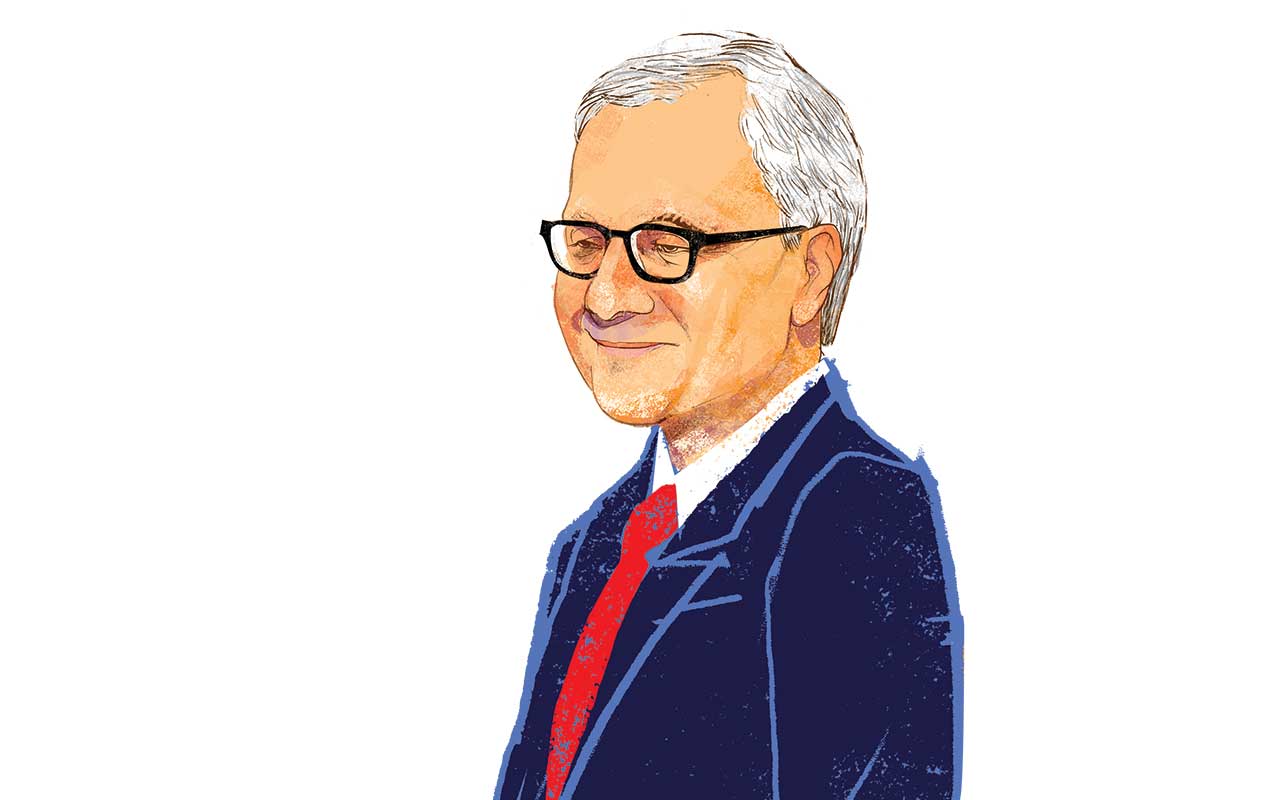
Ed Yardeni
- Head of Yardeni Research
- Picks: Technology, biotech and medical devices, European and Japanese industrials
One of Wall Street’s best-known strategists, Yardeni has remained “vocally bullish” on U.S. stocks since late March 2009. And he isn’t changing his tune. He expects Standard & Poor’s 500-stock index to end 2017 between 2400 and 2500—up as much as 4% from its May 31 close of 2412. The main reasons for his optimism: Corporate profits are on the mend and will continue to rise at a healthy pace, whether or not Washington pushes through tax cuts and business-friendly regulatory changes.
His concern now is that stock prices could rise too far, too fast. “The biggest risk I can see is a melt-up in the stock market,” he says. If the S&P 500 were to blow past 2600 over the next few months, Yardeni says, he would urge investors to lighten up on stocks. He also cautions that some companies and industries hold scant appeal. Retailers that are facing stiff online competition, notably from Amazon.com (AMZN), aren’t compelling. Nor is he a fan of oil-and-gas producers, automakers, or such dividend-oriented stocks as utilities and real estate investment trusts.
More attractive are financial-services companies, which should benefit from deregulation. Firms involved in artificial intelligence, robotics, biotechnology and advanced medical devices will fare well, too. And he notes that people are spending more. “Consumers want to have fun,” he says, and that should benefit operators of casinos, cruise lines, theme parks and other entertainment businesses. “Millennials like experiences more than flat-screen TVs and cars,” he says. “Baby boomers are selling their big houses, moving into apartments and getting together with families for cruises. We’ll see more of that.”
One other favorite idea: European and Japanese industrial companies. “These businesses are using artificial intelligence and robotics to increase productivity,” which helps their bottom lines, he says.
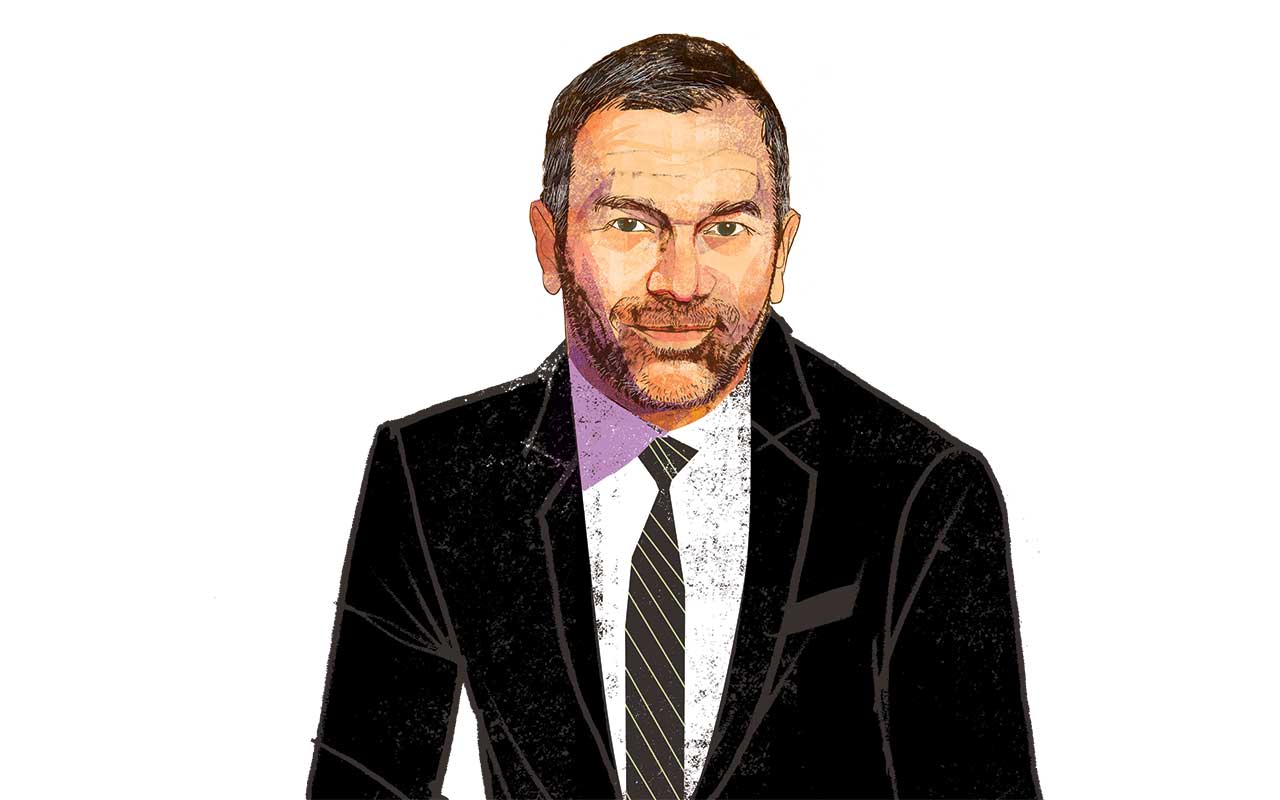
Steven Wymer
- Manager, Fidelity Growth Company (FDGRX)
- Picks: Alphabet, Amazon.com, Nvidia
Wymer, whose fund is closed to new investors, looks for firms that are expanding at above-average rates. These stocks are often expensive, but Wymer isn’t deterred if he thinks a company’s growth will propel its stock to new heights.
Some of the largest technology stocks on the market now appeal to him, especially those involved in artificial intelligence or “machine learning.” His fund’s top holdings at last report included Google’s parent, Alphabet (GOOGL, $987), as well as Amazon.com ($995) and Facebook (FB, $151). One big reason Wymer owns those companies is their innovative use of artificial intelligence, which works in the background to learn users’ preferences and steers them toward products, ads or other things they might like. “Think of the recommendations you get to buy things on Amazon—those have algorithms and machine learning behind them, not human beings,” Wymer says.
Chip maker Nvidia (NVDA, $144) should be an AI winner, too. The company makes most of its money by selling chips for high-end graphics and video gaming. Automakers are also buying Nvidia’s chips to incorporate safety technologies that can “see” other cars and obstacles on the road. Ultimately, these chips may help power millions of fully autonomous vehicles, including electric cars made by Tesla (TSLA, $341), another of Wymer’s holdings.
Elsewhere in tech, he owns stakes in Chinese internet retailers Alibaba (BABA, $123), JD.com (JD, $40) and VIPshop (VIPS, $12). Because online retail sales aren’t as advanced in China as they are in the U.S., Wymer says, growth opportunities are better. “It’s a lot more convenient to have something delivered to your house than to put up with small stores and traffic in Chinese cities,” he says.
In biotechnology, Wymer holds stocks such as Ionis Pharmaceuticals (IONS, $46) and Biogen (BIIB, $248). Working together, the firms won approval last year for the first and only drug to treat spinal muscular atrophy, a rare and often fatal disease in children. “It’s a lifesaving drug,” says Wymer, “and it’s off to a good start.” Also in his fund is Alkermes (ALKS, $58), an Ireland-based drugmaker that is developing products to treat disorders of the central nervous system. Although Alkermes isn’t profitable, revenues are rising for its approved products, led by Vivitrol, an injected medicine to treat drug and alcohol dependence. Wymer thinks Vivitrol sales could climb sharply as a treatment for opioid addiction. “People who commit crimes tend to be alcohol- and drug-dependent,” he says. “This gets them some help.”
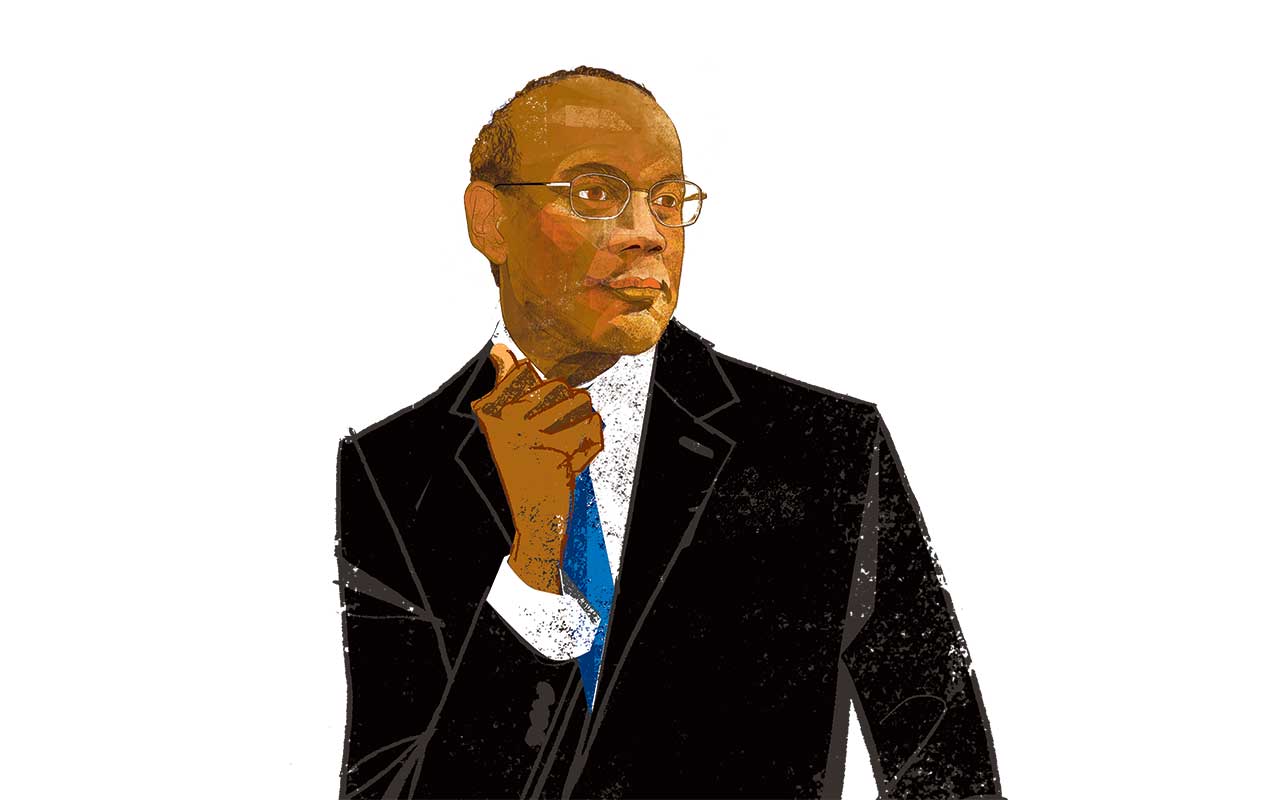
John Rogers
- Manager, Ariel Fund
- Picks: Lazard, Tegna, Viacom
A disciple of Warren Buffett, Rogers looks for high-quality businesses with “wide moats” (obstacles that provide strong protection from competitors) and cheap stocks. It’s hard to find bargains today, but one area where he does see value is in financial firms, notably investment bank Lazard (LAZ, $44) and private-equity firm KKR (KKR, $18).
Lazard, which is incorporated in Bermuda and has offices around the world, should benefit from improving economies in Europe, where it does a lot of investment banking. The bank also manages more than $194 billion in stocks, bonds and alternative investments, a business that Rogers calls an “underappreciated gem.” KKR buys publicly traded companies, holding them for a few years to revitalize their business, then reissuing shares at a profit. Rising interest rates would pressure the business because KKR takes out massive loans to help pay for buyouts. But Rogers still likes the stock, saying, “KKR is a bet on the growth of American businesses.”
Rogers also sees value in media companies Viacom (VIAB, $35) and Tegna (TGNA, $15), an owner of local TV stations. Viacom’s stock has endured a brutal stretch due to boardroom battles for control of the company and steep losses at its Paramount movie studio. But Viacom remains a content-rich dynamo, with such popular offerings as BET, Comedy Central, MTV and Nickelodeon. The stock trades at just 12 times estimated earnings for the next 12 months. Tegna is transitioning into a pure play on local TV. It recently jettisoned its Cars.com division—pocketing $650 million in cash, tax-free—to focus on raising sales and profits at its 46 local stations and developing digital growth strategies (it also owns Careerbuilder.com). People still watch a lot of local news, Rogers says, which supports ad sales. He predicts that the stations will get a lift in ad spending for 2018 congressional races.
One area that doesn’t entice him: department stores. Although the stocks look cheap, they face such intense online competition that sales and profits may be in a prolonged downward spiral. “It’s very difficult for retailers or malls to do well with the way technology is changing our lives,” Rogers says. “They’re value traps.”
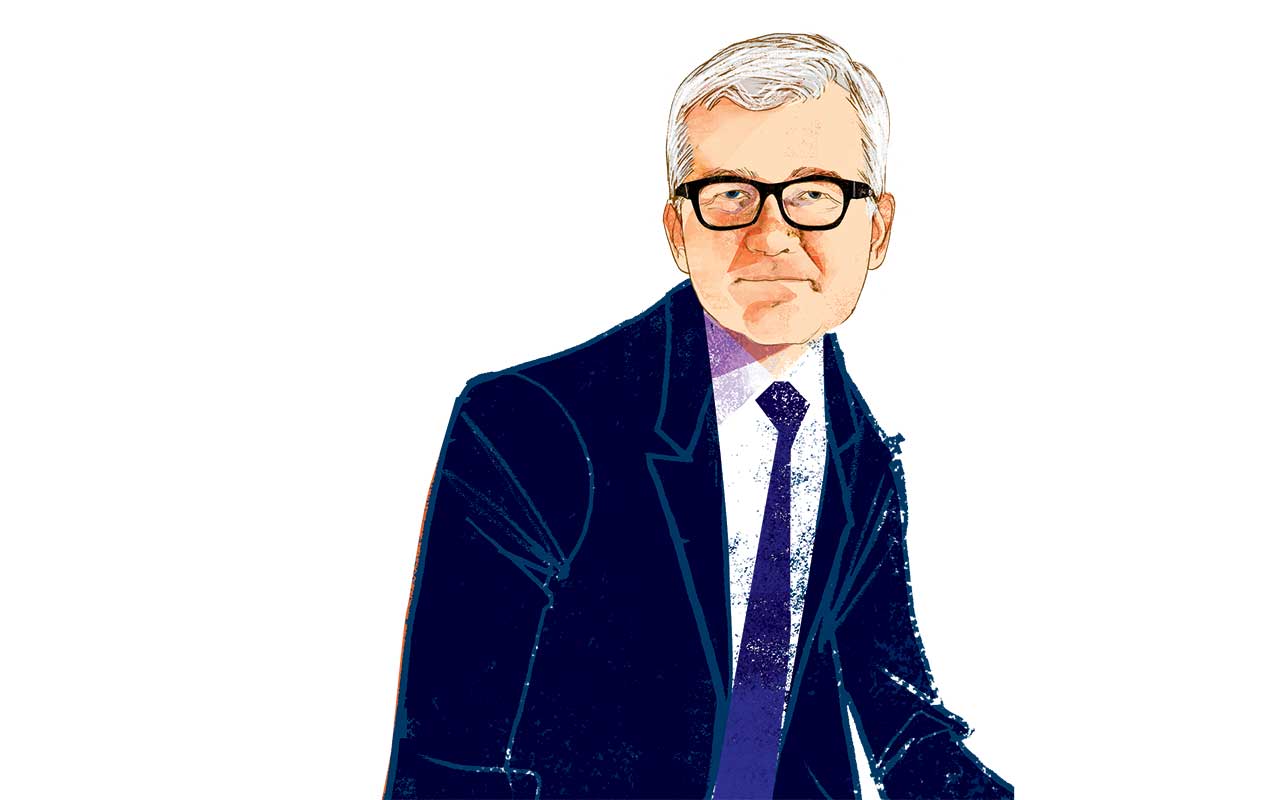
Mark Yockey
- Lead manager, Artisan
- Picks: Allianz, Unliver, Wal Mart de Mexico
Growing up in a small Michigan town, Yockey made his first trip abroad in his senior year of high school, visiting several European countries. These days, he views Europe primarily through an investing lens, and he likes what he sees. He has stashed 60% of his fund’s assets in European stocks.
Europe’s political outlook has stabilized following French and German elections that solidified support for centrist leaders and the euro currency. The region’s economic recovery could accelerate with pro-growth policies and more efforts to bring countries closer together economically, he says. Compared with the U.S. market, European stocks look relatively cheap, too. “The rally is just beginning,” he says. (For a look at three top-performing Europe mutual funds, see 3 Ways to Invest in Europe's Recovery.)
Financial-services firms will benefit. German insurer Allianz (AZSEY, $19), parent of Pimco, generates buckets of cash it can use to hike its dividend; its stock yields a hefty 4.3%. Netherlands-based ING (ING, $17), one of Europe’s largest banks and financial-services firms, is investing heavily in its online business and plans to close hundreds of branches—moves that should save money and boost its bottom line. Yockey also likes Unilever (UL, $56), the Anglo–Dutch consumer-products firm. The company, which recently rebuffed a buyout offer, has announced more cost-cutting efforts and a new round of stock buybacks to help appease investors. He thinks Unilever could be bought or broken up, lifting the stock either way.
In North America, Yockey views Canadian Pacific Railway (CP, $158) as a compelling stock, largely because of the company’s key role in transporting oil and other raw materials to China. Railroads have also consolidated, giving them more power to maintain prices. Another favorite is Wal-Mart de Mexico (WMMVY), 70% owned by Wal-Mart Stores (WMT). With more than 3,000 stores in Mexico and other countries in Latin America, Walmex should keep racking up sales, both in brick-and-mortar locations and online. Internet shopping remains at a fledgling stage in the region compared with more-developed markets, Yockey says: “People will pick up online purchases at these big-box stores. Walmex will be part of that solution.
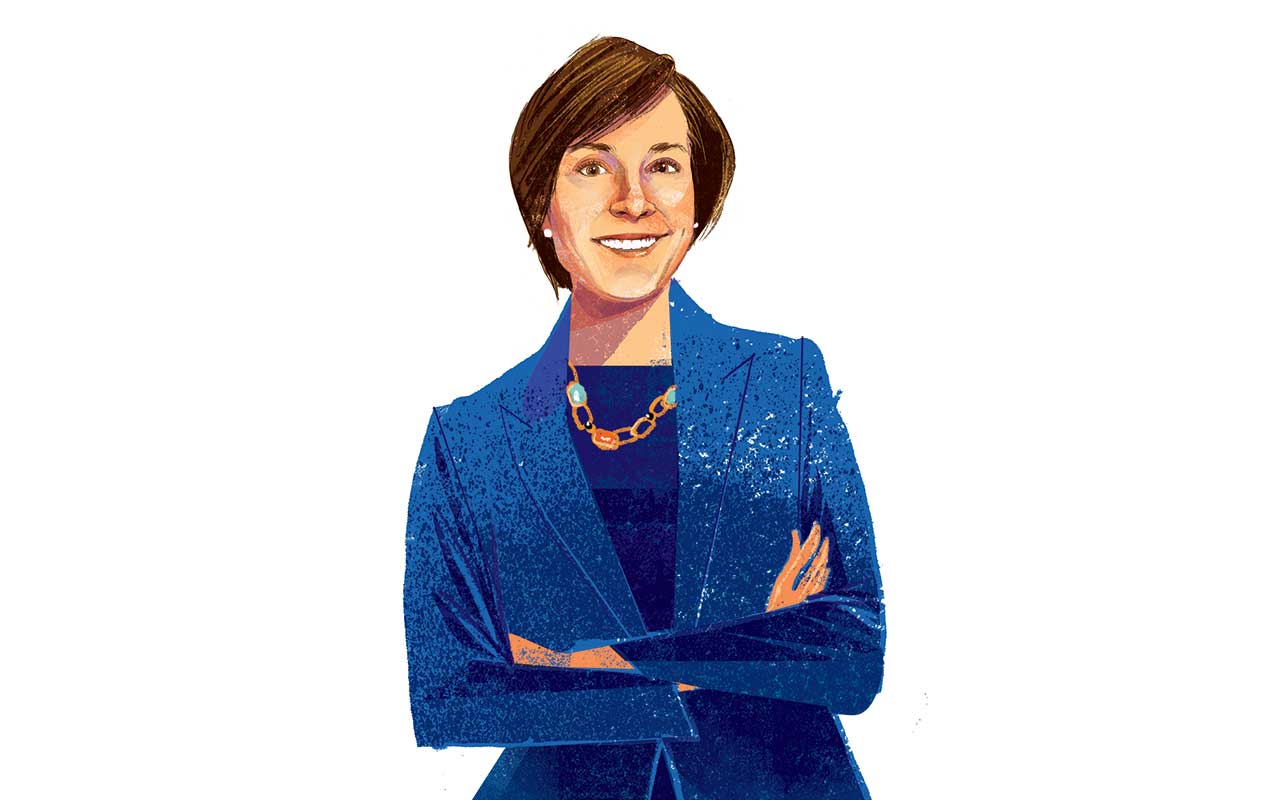
Sarah Ketterer
- Lead manager, Causeway International Value Fund
- Picks: Barclays, BP, China Mobile
Ketterer looks for foreign companies with inexpensive share prices, solid businesses, and some momentum in their earnings or other “quantitative” factors that could lift their stocks. Like Yockey, she sees some of the best deals in Europe, especially the United Kingdom, where, she says, stocks have been punished unduly over concerns that the country’s exit from the European Union will kill its economy.
British banks won’t lose nearly as much business as people expect because of Brexit, she says, partly because the financial services they provide can’t easily be duplicated in such rival financial centers as Frankfort or Dublin. Barclays (BCS, $11) looks attractive for both its investment-banking and consumer businesses, she says. And Lloyds Banking (LYG, $4)runs a thriving business lending to British consumers and companies, and its banking business is supported by a rock-solid capital base. “Lloyds is the well-behaved Wells Fargo of the U.K.,” she says.
Energy giants British Petroleum (BP, $36) and Royal Dutch Shell (RDS.A, $54) also hold appeal. Both have invested heavily to boost production, and each has cut spending to try to remain profitable even if energy prices slump again. BP, for instance, recently said it could balance its books by 2021 with oil prices as low as $35 a barrel (down from $50 today). Investors can scoop up yields north of 6.5% for each stock, and both companies have the wherewithal to maintain their payouts, with dividends that look well supported by their corporate parents.
Dividend investors may like two of Ketterer’s other holdings: China Mobile (CHL, $55) and South Korea’s SK Telecom (SKM, $25). Both companies are providers of phone and broadband services and dominate their respective markets. China Mobile has embarked on a “big connectivity” strategy to profit from hot areas such as cloud computing and the Internet of Things. SK Telecom is pursuing similar goals, and both firms should benefit from the eventual rollout of a next-generation 5G network. Each company also generates “mountains” of cash, Ketterer says, and they spend it wisely on the business, leaving plenty of money to pay ample dividends.
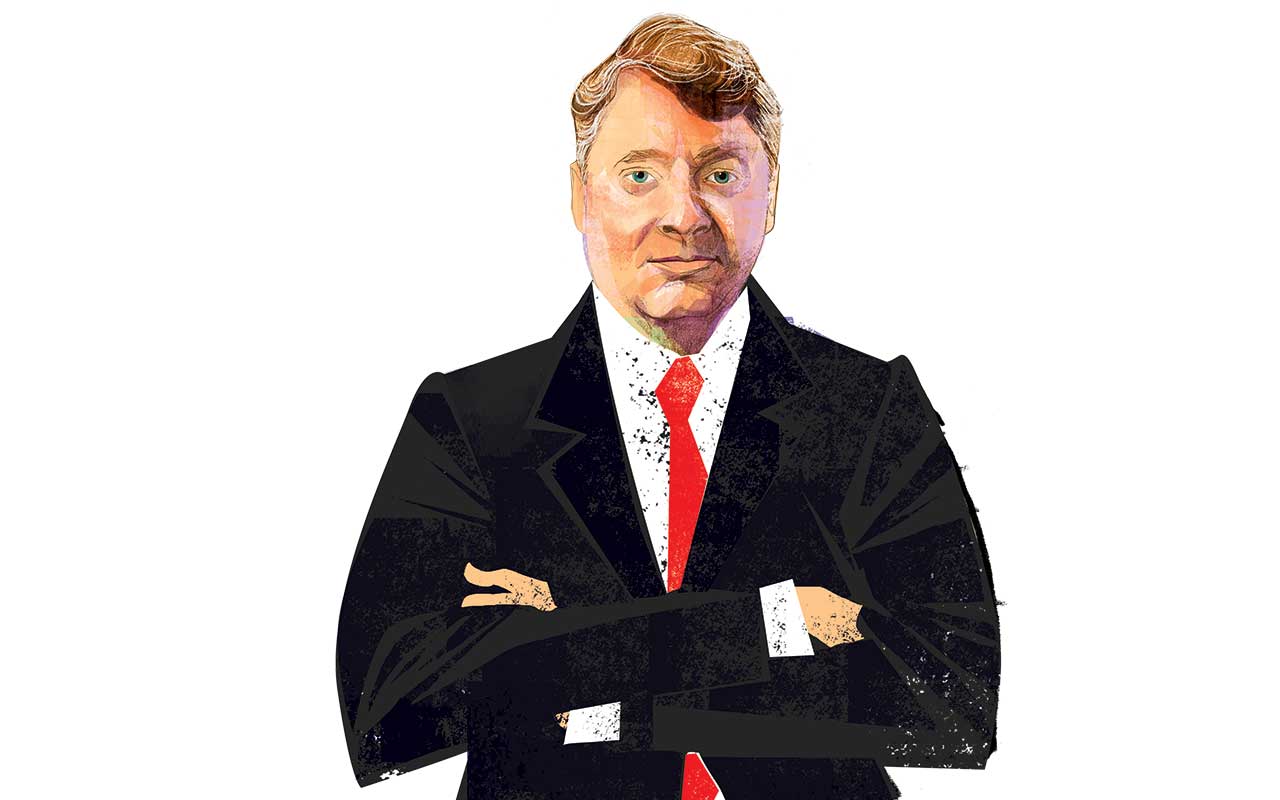
Daniel Ivascyn
- Chief Investment Officer, Pimco
- Picks: Treasuries and high-quality corporate bonds, Australian and Mexican government bonds, mortgage-backed securities
Managing more than $1.5 trillion, mainly in fixed-income investments, Pimco carries a big stick in the bond world. Ivascyn doesn’t wield that stick on his own. But as the head of fixed-income strategies, he oversees funds involved in everything from Treasuries to emerging-markets bonds, including more than $85 billion in Pimco Income (PONDX), a member of the Kiplinger 25 (the list of our favorite no-load mutual funds).
Many investors are bracing for a spike in interest rates, which would push down bond prices. But Ivascyn says rates are likely to remain in a narrow range near current levels, partly because the economy isn’t expanding quickly enough to ignite much inflation (which would prompt the Fed to raise rates more rapidly and likely push up yields across a multitude of bonds). “I’d categorize our view on rates as cautious, not alarmist,” he says.
Against that backdrop, Ivascyn recommends tilting toward Treasuries and high-grade corporate bonds with short- to intermediate-term maturities. Steeper rates could pressure these bonds. But investors would recover losses fairly quickly as they collected additional interest income from higher-yielding bonds. These types of high-quality bonds don’t yield much, but they can be a good buffer against declines in stocks or other risky investments. “When bad things happen, whether it’s a geopolitical event or economic shock, high-quality bonds tend to perform well,” he says.
Ivascyn also likes mortgage-backed securities and bonds issued by companies benefiting from the housing recovery. Mortgage securities would slump if rates were to rise. But Ivascyn holds other investments in funds such as Pimco Income that would gain value in a rising-rate climate, and he expects housing-related bond investments to hold steady even if mortgage rates inch up a bit. “The U.S. housing market is rock-solid,” says Ivascyn.
He also likes some foreign-government bonds. Australian government debt yields a bit more than Treasuries, for instance, and poses virtually no risk of default. Mexico’s currency and government bonds are more volatile. But they got “very cheap” after the U.S. election because of heightened concerns about trade and political friction between Mexico and the U.S. Those issues have since receded, lifting Mexican bonds, which Ivascyn still finds relatively attractive.
One area that worries him is floating-rate bank loans. Investors have flooded into these investments because they should benefit from rising rates. But companies have issued a lot of loans with weak protections for investors, raising the risk of losses if the businesses falter. “Floating-rate bank loans warrant caution,” he says.
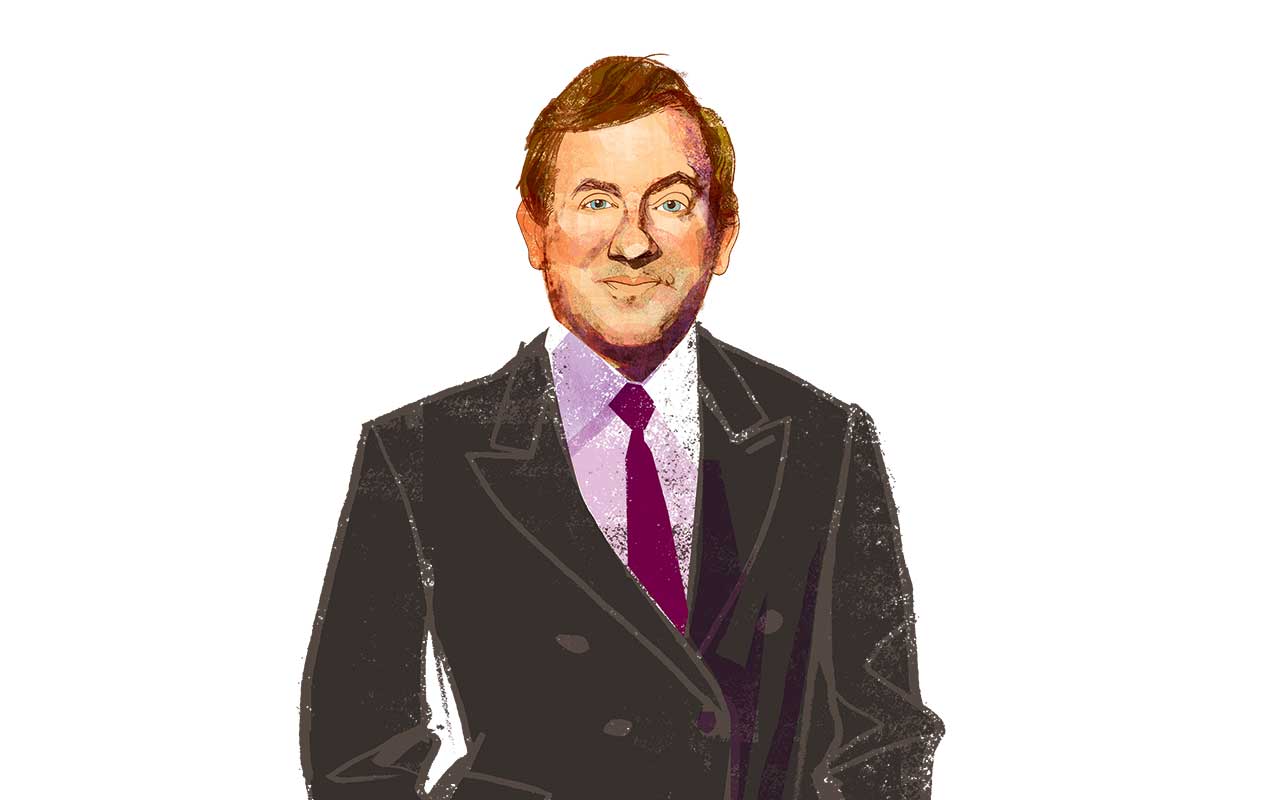
Tad Rivelle
- Chief Investment Officer, TCW
- Picks: Treasuries and high-quality corporate bonds, mortgage-backed securities, adjustable-rate student loans
A comanager of Kiplinger 25 member MetWest Total Return (MWTRX), Rivelle frets about the impact of rising rates on fixed-income investments. But he’s seeing fissures in the corporate debt markets that worry him even more.
Companies have been issuing mountains of debt to help pay for stock buybacks and dividends, he says, and that is straining balance sheets. Rivelle also sees trouble in subprime auto loans, where defaults are rising, and in debt issued by ailing shopping-mall owners.
High-yield bonds don’t pay enough to overcome their risks, he adds, and they look dicey, partly because of increasingly weak protection for investors in the event of a default. The bull market in junk bonds is pushing past eight years, and Rivelle doesn’t expect it to last much longer. “If this cycle doesn’t end, it would be the first in history. When it does, it will end with relatively severe losses for many bondholders.”
Rather than reaching for a little extra yield, Rivelle urges investors to “focus on safety and emphasize investment-grade bonds” with short- to medium-term maturities. High-quality corporate debt, Treasuries and government-backed mortgage securities should fare well, assuming rates don’t rise sharply. Also appealing are pools of adjustable-rate student loans backed by the federal government. Yields on these investments would increase if short-term market rates were to rise.
Rivelle also favors “private label” mortgage securities issued before the financial crisis of 2008. The government doesn’t back these securities, which tumbled as homeowners missed payments or defaulted on loans during the Great Recession. But the surviving mortgage pools look sturdier—backed by higher housing prices and lower debt burdens for homeowners. The bonds also pay more than agency-backed mortgage securities, and they aren’t as rate-sensitive. “You’re looking at investments that can produce returns of 2% to 5% in a stable rate environment,” he says. “That’s as good as it gets today.”
Profit and prosper with the best of Kiplinger's advice on investing, taxes, retirement, personal finance and much more. Delivered daily. Enter your email in the box and click Sign Me Up.

-
 How to Turn Your 401(k) Into A Real Estate Empire
How to Turn Your 401(k) Into A Real Estate EmpireTapping your 401(k) to purchase investment properties is risky, but it could deliver valuable rental income in your golden years.
-
 My First $1 Million: Retired Nuclear Plant Supervisor, 68
My First $1 Million: Retired Nuclear Plant Supervisor, 68Ever wonder how someone who's made a million dollars or more did it? Kiplinger's My First $1 Million series uncovers the answers.
-
 How to Position Investments to Minimize Taxes for Your Heirs
How to Position Investments to Minimize Taxes for Your HeirsTo minimize your heirs' tax burden, focus on aligning your investment account types and assets with your estate plan, and pay attention to the impact of RMDs.
-
 Dow Adds 1,206 Points to Top 50,000: Stock Market Today
Dow Adds 1,206 Points to Top 50,000: Stock Market TodayThe S&P 500 and Nasdaq also had strong finishes to a volatile week, with beaten-down tech stocks outperforming.
-
 Stocks Sink With Alphabet, Bitcoin: Stock Market Today
Stocks Sink With Alphabet, Bitcoin: Stock Market TodayA dismal round of jobs data did little to lift sentiment on Thursday.
-
 Dow Leads in Mixed Session on Amgen Earnings: Stock Market Today
Dow Leads in Mixed Session on Amgen Earnings: Stock Market TodayThe rest of Wall Street struggled as Advanced Micro Devices earnings caused a chip-stock sell-off.
-
 Nasdaq Slides 1.4% on Big Tech Questions: Stock Market Today
Nasdaq Slides 1.4% on Big Tech Questions: Stock Market TodayPalantir Technologies proves at least one publicly traded company can spend a lot of money on AI and make a lot of money on AI.
-
 Fed Vibes Lift Stocks, Dow Up 515 Points: Stock Market Today
Fed Vibes Lift Stocks, Dow Up 515 Points: Stock Market TodayIncoming economic data, including the January jobs report, has been delayed again by another federal government shutdown.
-
 Stocks Close Down as Gold, Silver Spiral: Stock Market Today
Stocks Close Down as Gold, Silver Spiral: Stock Market TodayA "long-overdue correction" temporarily halted a massive rally in gold and silver, while the Dow took a hit from negative reactions to blue-chip earnings.
-
 The New Fed Chair Was Announced: What You Need to Know
The New Fed Chair Was Announced: What You Need to KnowPresident Donald Trump announced Kevin Warsh as his selection for the next chair of the Federal Reserve, who will replace Jerome Powell.
-
 Nasdaq Drops 172 Points on MSFT AI Spend: Stock Market Today
Nasdaq Drops 172 Points on MSFT AI Spend: Stock Market TodayMicrosoft, Meta Platforms and a mid-cap energy stock have a lot to say about the state of the AI revolution today.
